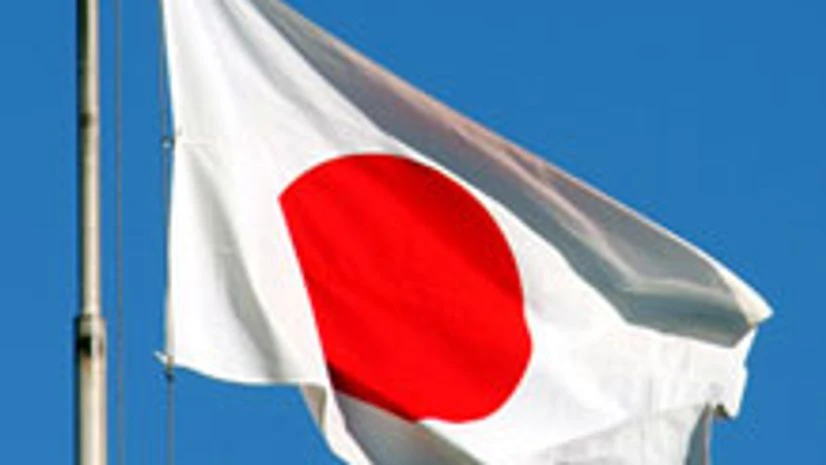A sales tax hike last quarter drove Japan's economy into its biggest contraction since the March 2011 earthquake and tsunami, Cabinet Office data showed on Wednesday, keeping policymakers under pressure to expand fiscal and monetary stimulus should recovery falter again.
The April 1 sales tax hike took a heavy toll on household spending, shrinking the world's third-largest economy by an annualised 6.8 per cent from April through June, and wiping out growth of 6.1 per cent seen in January-March as consumers went on a shopping spree to avoid the higher tax.
The median market forecast was for a 7.1 per cent drop.
Seeing the slump as temporary, however, the Bank of Japan (BoJ) remains publicly convinced the economy is on course for a moderate recovery and has no plans to expand stimulus any time soon.
The soft data, though, could compel the central bank into trimming its rosy fiscal year economic projections when it reviews them in October.
If third quarter growth proves weak the BoJ may also come under pressure to add stimulus - particularly before Prime Minister Shinzo Abe decides later this year whether to implement a second sales tax hike from 8 to 10 per cent in October next year, analysts say.
"Should the next quarter be weaker than expected, there's the chance that the BoJ will be called on to do some more easing - and how the BoJ responds then will be another point to watch," said Yuichi Kodama, an economist at Meiji Yasuda Life Insurance.
Economics Minister Akira Amari signalled the government's readiness to compile an extra budget later this year should growth in the third-quarter stay weak, although any fiscal stimulus would probably not be big enough to have a major impact on the economy, given Japan's dire government finances.
"At the moment I don't feel the need (to prepare an extra stimulus) but we will take necessary steps as appropriate depending on economic developments from now on. Appropriate steps mean every possible measure," he told reporters after the data was published.
On a quarter-to-quarter basis, Japan's economy shrank 1.7 per cent in the second quarter, less than a median forecast for a 1.8 per cent fall.
The second-quarter contraction was the biggest decline since the first quarter of 2011, when the devastating earthquake and tsunami in March disrupted factory production and chilled household spending.
Private consumption, which makes up about 60 per cent of the economy, fell 5.0 per cent in the quarter, more than the 4.3 per cent drop forecast by markets. Capital expenditure also slumped 2.5 per cent, a worrying sign for policymakers counting on companies to support recovery by increasing their spending.
External demand added 1.1 percentage points to GDP, after shaving 0.2 point off first-quarter growth, but was mostly due to a fall in imports. Exports fell 0.4 per cent in the second quarter, underscoring how much the failure of exports to rebound is weighing on the economy.
Many analysts expect a pick-up in July-September as the tax hike impact fades, with some projecting an annualised expansion of around 3 per cent to 5 per cent. A tightening job market is gradually pushing up wages and big firms have boosted summer bonus payments, which augurs well for consumption.
Still, a majority of economists project growth for the current fiscal year, which began in April, to fall well short of last month's BoJ projection for a 1.0 per cent expansion.
BoJ Governor Kuroda has repeatedly stated he would not be surprised to see a contraction in April-June economic activity, and that there was no need to offer additional stimulus as growth is set to rebound in July-September.
Some analysts pointed to a rise in inventories in the second-quarter GDP data as a sign that companies, having underestimated the tax hike effect, added excess inventory and will scale back production in coming months.
"The positive contribution from inventories is a risk factor for the future. This means we need stronger domestic demand growth in July-September to achieve a rebound strong enough to justify a second rise in the sales tax," said Masayuki Kichikawa, chief Japan economist at Bank of America Merrill Lynch.
"I think there is a 70 to 80 percent chance Abe will raise the sales tax again with another fiscal stimulus package," he said.
Government officials have already signaled privately that they are ready to compile an extra budget toward the year-end to shore up the economy, scraping leftover money from the previous fiscal year's budget.
They remain silent on the possible size of the stimulus and when the budget would be compiled, all of which depends on economic performance this quarter.
Under its "quantitative and qualitative easing" policy put in place last April, the BOJ now buys 70 percent of new government bonds issued in markets, as well as risky assets, to reflate the moribund economy.
(Additional reporting by Stanley White, Chris Gallagher and Minami Funakoshi; Editing by Eric Meijer)

)
